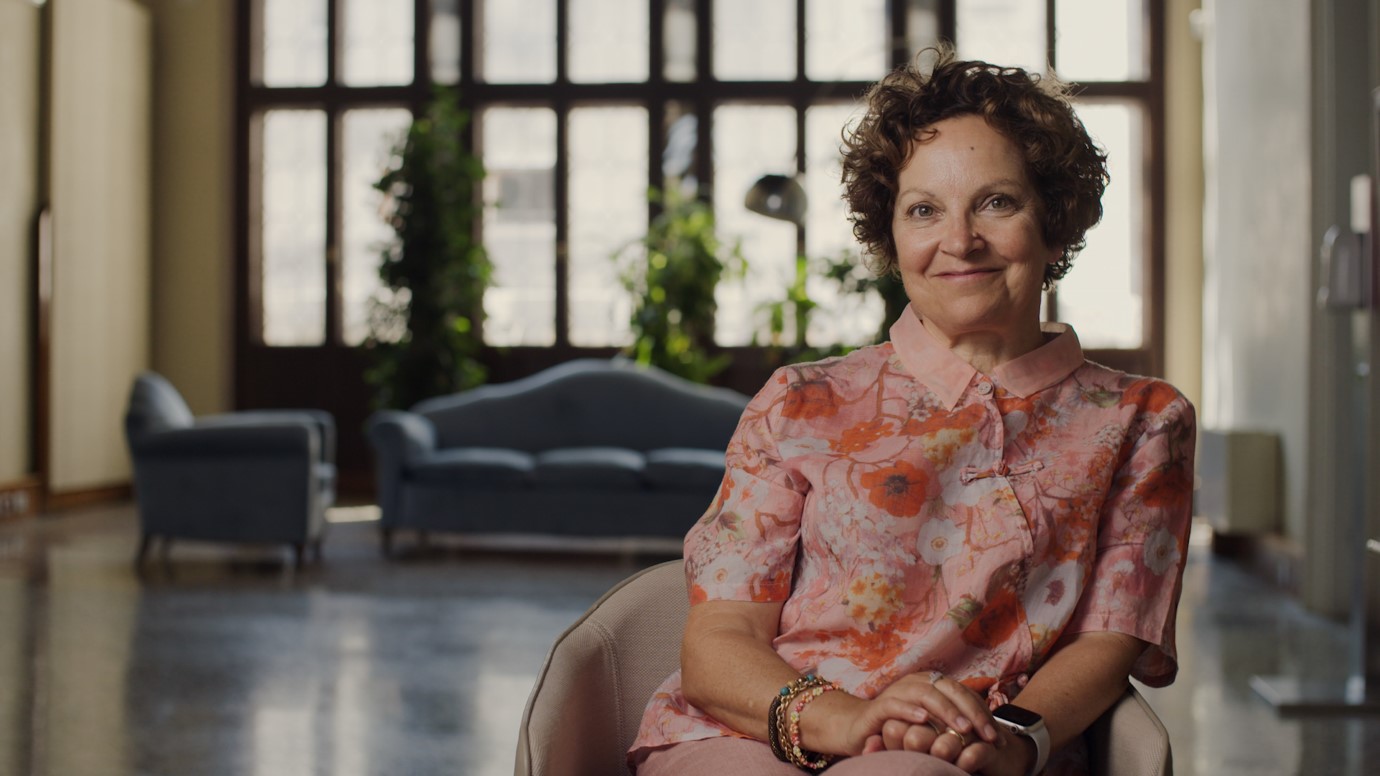Tiziana Lippiello: You cannot understand China without understanding Chinese classics
Under the bright sun, gondolas and vaporrettos glide through the waterways of the Grand Canal. 2024 marks the 20th anniversary of the comprehensive strategic partnership between Italy and China, as well as the 700th anniversary of the death of Marco Polo. On a hot August day, Tiziana Lippiello, the rector of Ca' Foscari University of Venice and professor of classical Chinese, religions and philosophy of China, shared her appreciation of Chinese philosophy with great passion. She hopes to see more collaboration between Italy and China in the future following the example of Marco Polo.

Tiziana Lippiello (Photo/Patrick Shead-Simmonds)
As an expert in classical Chinese, Lippiello said that "Chinese texts contain the essence of Chinese philosophy and Chinese everyday life. Any time I read "Lun Yu", "Zhong Yong", and "Da Xue", I find new meanings and the wisdom of China." She is particularly fond of the concept of "Zhong Yong" because "it means equilibrium, which is the balance you find in yourself and in your life. It also means when you approach people, you must be generous and look at life through other people's eyes." Another concept that she considers important and universal in Chinese philosophy is "Shu" in "Lun Yu", which she translated as empathy, meaning understanding what other people wish and think.
For Lippiello, Chinese classics are a crucial way to foster cross-cultural dialogue between China and Italy. She suggested that "we can promote messages in Chinese classics in dialogue with European values and teach the younger generation what Chinese and in general world classics are." As the rector of Ca' Foscari University of Venice, Lippiello proudly told People's Daily Online that at Ca'Foscari they teach classical Chinese to all students in Chinese studies. Lippiello considered that people cannot understand Chinese society without understanding Chinese classics. She emphasized that "it is very important to learn the lessons in the classics and it is very important for Chinese people to learn European history and the classics."
This year is the 700th anniversary of the death of Marco Polo, so Lippiello shared her understanding of "He Er Bu Tong" in relation to this celebrated traveller. She said, "'He Er Bu Tong' means diversity in harmony. It means to respect other cultures and be inclusive. This is something Marco Polo did, he looked at China with curiosity; he observed how Chinese people lived without prejudice."
In her opinion, communication is much easier in the 21st century and countries should face global challenges together and collaborate with each other; this is the only solution. Lippiello said, "Travelling is very important. This was what Marco Polo did when he went to China at the age of 17. He probably did not know the Chinese language, but he put all his energy into understanding China. The young generation should meet each other and get to know each other before making judgements on a country or a culture." Lippiello went on to say that "Marco Polo symbolizes the encounter of cultures and how different civilizations can collaborate in the 21st century and foster dialogue with each other. Marco Polo is a symbol of promoting new dialogues between Italian culture and Chinese culture."
When discussing future collaborations between China and Italy, Lippiello said, "We should promote activities and projects that involve our universities, cities, and regions, creating knowledge transfer." Ca' Foscari University of Venice currently has joint interdisciplinary programs with Xiamen University and Capital Normal University. These programs bring together, the arts, humanities, economics, and sciences based on the tradition of Ca' Foscari University of Venice. The University also has three collaborative projects with Soochow University. "We plan to foster new joint programs with Fudan University, my second alma mater, with Soochow University, with Peking University and with Shanghai International University," she added.

 Scan the QR Code
Scan the QR Code